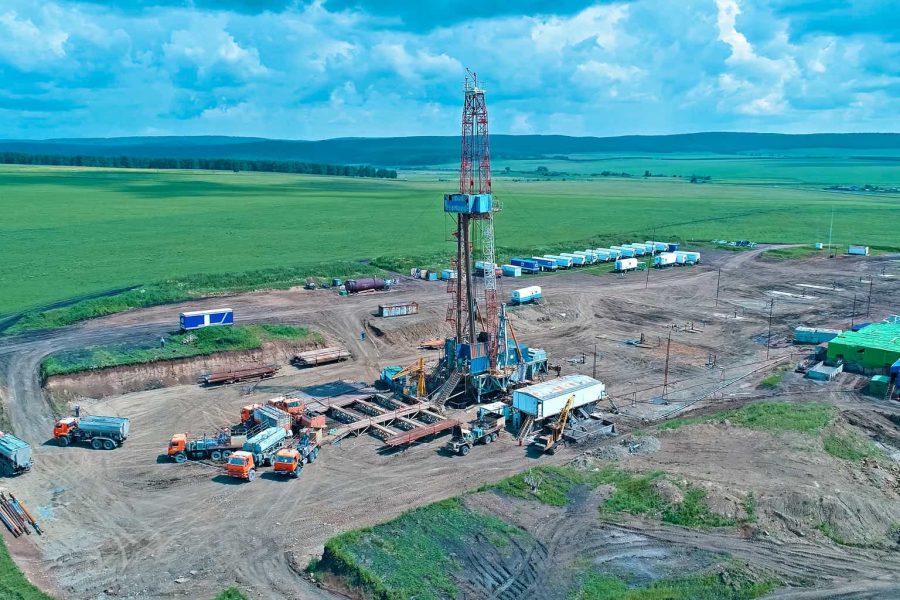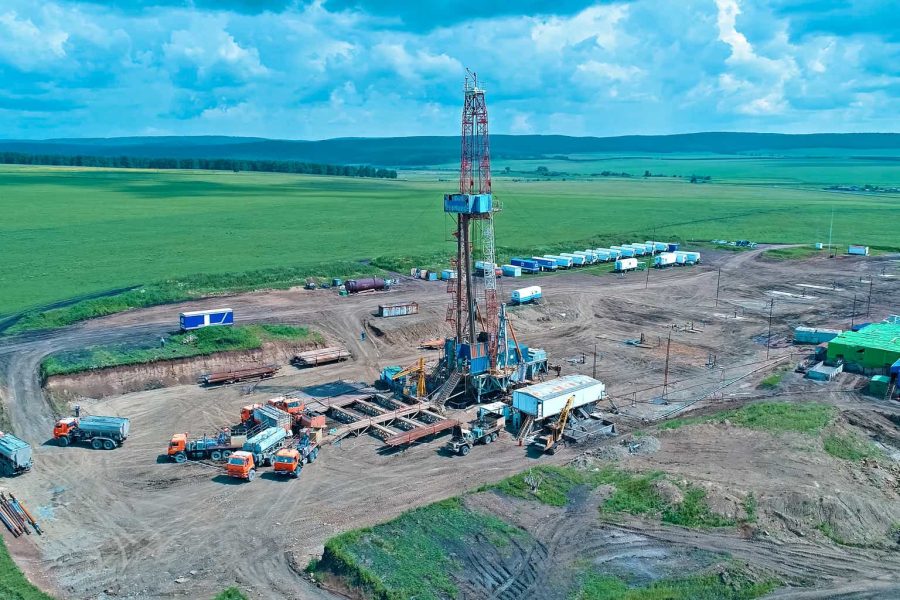July 14, 2024 This Week Top S&P 500 Gainers & Losers
Tesla: Time To Take Profits
Microsoft: The Q4 Results Should Surprise You
Tesla: Optimus And FSD Probably Won’t Save The Day
April 23, 2024 Maximizing Profits: When is the Right Time to Sell Your Business?
April 12, 2024 Improve Your Financial Status: A How-To Guide
April 12, 2024 How ZIM Integrated Container Tracking is Revolutionizing Global Trade
March 15, 2024 6 Best Growth Stocks To Buy Now According to Metatrader 5

Halliburton (HAL) Stock Forecast for 2024–2028. Sell or Buy?
Updated: July 26, 2024 (20:43)
Sector: EnergyThe share price of Halliburton Comp. (HAL) now
50/200 Day Moving Average: $34.79 / $36.78
This figure corresponds to the Average Price over the previous 50/200 days. For Halliburton stocks, the 50-day moving average is the resistance level today.
For Halliburton stocks, the 200-day moving average is the resistance level today.
Are you interested in Halliburton Comp. stocks and want to buy them, or are they already in your portfolio? If yes, then on this page you will find useful information about the dynamics of the Halliburton stock price in 2024, 2025, 2026, 2027, 2028. How much will one Halliburton share be worth in 2024 - 2028?
When should I take profit in Halliburton stock? When should I record a loss on Halliburton stock? What are analysts' forecasts for Halliburton stock? What is the future of Halliburton stock? We forecast Halliburton stock performance using neural networks based on historical data on Halliburton stocks. Also, when forecasting, technical analysis tools are used, world geopolitical and news factors are taken into account.
Halliburton stock prediction results are shown below and presented in the form of graphs, tables and text information, divided into time intervals. (Next month, 2024, 2025, 2026, 2027 and 2028) The final quotes of the instrument at the close of the previous trading day are a signal to adjust the forecasts for Halliburton shares. This happens once a day.
Historical and forecast chart of Halliburton stock
The chart below shows the historical price of Halliburton stock and a prediction chart for the next month. For convenience, prices are divided by color. Forecast prices include: Optimistic Forecast, Pessimistic Forecast, and Weighted Average Best Forecast. Detailed values for the Halliburton stock price can be found in the table below.
Long-term forecasts by years.

The Future of HAL Stocks: Key Influencers and Forecasting Insights

As we approach Halliburton's (HAL) upcoming earnings announcement, several key factors are set to play significant roles in determining the stock's trajectory. Investors are keenly observing revenue growth, industry trends, market sentiment, earnings announcements, and the company's share buyback program.
Key Influencers of HAL Stock Rates
Revenue growth and profitability are paramount. Analysts project that robust revenue growth and improved profitability will attract investors and push HAL stock prices higher. This is further amplified by industry trends; increasing drilling activity and oil production can boost demand for Halliburton’s services, positively impacting revenue and stock prices.
Market sentiment also plays a crucial role. Positive investor perception, driven by favorable industry conditions or operational successes, can create a bullish environment for HAL stocks. Such sentiment is often swayed by the earnings announcement and financial results. If Halliburton surpasses market expectations, we can expect a positive spike in stock prices.
The share buyback program is another influential factor. By reducing outstanding shares, Halliburton potentially improves its earnings per share, thus appealing to investors and supporting higher stock prices.
An analyst incorporating these factors—revenue growth, industry trends, market sentiment, financial results, and share buybacks—can make more accurate HAL stock forecasts. Monitoring these elements can help them determine whether HAL stock is a good buy or sell and predict future HAL stock price targets more reliably.
- Revenue growth and profitability
- Industry trends and demand for services
- Market sentiment and investor perception
- Earnings announcement and financial results
- Share buyback program
By staying informed about these elements, analysts can provide valuable insights for those looking to buy or sell Halliburton stock, making the HAL stock forecast a critical tool in investment strategies.
Review the original Analysis

Navigating the Winds of Change: Halliburton Stock Forecast Amidst OPEC Decisions and Market Turbulence

Investors and analysts closely watching the HAL stock forecast are keenly aware that the energy sector, and Halliburton in particular, stands at a complex intersection of market forces and geopolitical decisions. At the forefront are the uncertain macroeconomic conditions and an intricate dependence on OPEC's maneuvers regarding oil prices. These key factors are crucial for anyone considering whether HAL is a good stock to buy or if it's time to sell.
Deciphering Market Signals for an Accurate HAL Stock Price Prediction
To make the most accurate predictions on the HAL stock price target, analysts must navigate through a series of influential factors. The challenged North America business, while currently balanced by an uptick in international activity, can significantly impact Halliburton's stock forecast. It's this delicate balance that makes understanding the broader economic landscape and OPEC's future supply decisions vital for predicting HAL stock prices.
- The unsettled macro conditions, coupled with OPEC’s potential shifts in oil supply, directly influence oil prices and, by extension, the profitability of companies like Halliburton. This dynamic makes the HAL stock buy or sell decision more complex.
- Furthermore, soft economic data indicating weaker demand could exacerbate pressures on HAL stock price predictions. Analysts striving for a clear buy or sell Halliburton stock recommendation must carefully analyze these trends.
In conclusion, the future rates of HAL stocks hang in a delicate balance. For investors wondering "Is HAL a good stock to buy?" or aiming for an accurate HAL stock price prediction, understanding the intersection between geopolitical decisions, economic indicators, and sector-specific challenges will be key. As we move forward, the global economy and decisions by oil-producing nations will undoubtedly continue to play pivotal roles in shaping the Halliburton stock forecast.
Review the original Analysis



Halliburton daily forecast for a month
| Date | Target | Pes. | Opt. | Vol., % |
|---|---|---|---|---|
| Jul 28 | 34.74 | 34.02 | 35.34 | 3.86 |
| Jul 29 | 34.65 | 34.04 | 34.97 | 2.75 |
| Jul 30 | 35.15 | 34.47 | 35.63 | 3.36 |
| Jul 31 | 35.68 | 35.14 | 35.91 | 2.19 |
| Aug 01 | 36.32 | 35.97 | 36.67 | 1.94 |
| Aug 02 | 37.07 | 36.64 | 37.56 | 2.52 |
| Aug 03 | 37.27 | 36.51 | 37.58 | 2.94 |
| Aug 04 | 37.16 | 36.42 | 37.97 | 4.25 |
| Aug 05 | 37.68 | 36.92 | 38.04 | 3.03 |
| Aug 06 | 37.12 | 36.23 | 37.94 | 4.73 |
| Aug 07 | 36.30 | 35.65 | 36.60 | 2.66 |
| Aug 08 | 35.81 | 35.13 | 36.30 | 3.33 |
| Aug 09 | 35.86 | 35.18 | 36.45 | 3.61 |
| Aug 10 | 35.45 | 34.92 | 36.09 | 3.35 |
| Aug 11 | 35.85 | 34.99 | 36.62 | 4.64 |
| Aug 12 | 36.62 | 36.31 | 37.09 | 2.15 |
| Aug 13 | 36.18 | 35.72 | 36.58 | 2.40 |
| Aug 14 | 36.84 | 36.42 | 37.71 | 3.55 |
| Aug 15 | 36.21 | 35.83 | 36.79 | 2.70 |
| Aug 16 | 35.51 | 35.25 | 36.35 | 3.14 |
| Aug 17 | 35.10 | 34.68 | 35.72 | 3.01 |
| Aug 18 | 35.07 | 34.48 | 35.69 | 3.51 |
| Aug 19 | 35.69 | 34.95 | 36.10 | 3.31 |
| Aug 20 | 36.22 | 35.71 | 36.59 | 2.46 |
| Aug 21 | 37.23 | 36.80 | 37.74 | 2.55 |
| Aug 22 | 37.75 | 37.26 | 38.62 | 3.65 |
| Aug 23 | 37.15 | 36.83 | 37.42 | 1.60 |
| Aug 24 | 37.66 | 37.41 | 38.48 | 2.87 |
| Aug 25 | 37.72 | 37.00 | 38.07 | 2.87 |
| Aug 26 | 37.87 | 37.51 | 38.56 | 2.79 |
Halliburton Daily Price Targets
Halliburton Stock Forecast 07-28-2024.
Forecast target price for 07-28-2024: $34.74.
Positive dynamics for Halliburton shares will prevail with possible volatility of 3.716%.
Pessimistic target level: 34.02
Optimistic target level: 35.34
Halliburton Stock Forecast 07-29-2024.
Forecast target price for 07-29-2024: $34.65.
Negative dynamics for Halliburton shares will prevail with possible volatility of 2.675%.
Pessimistic target level: 34.04
Optimistic target level: 34.97
Halliburton Stock Forecast 07-30-2024.
Forecast target price for 07-30-2024: $35.15.
Positive dynamics for Halliburton shares will prevail with possible volatility of 3.255%.
Pessimistic target level: 34.47
Optimistic target level: 35.63
Halliburton Stock Forecast 07-31-2024.
Forecast target price for 07-31-2024: $35.68.
Positive dynamics for Halliburton shares will prevail with possible volatility of 2.146%.
Pessimistic target level: 35.14
Optimistic target level: 35.91
Halliburton Stock Forecast 08-01-2024.
Forecast target price for 08-01-2024: $36.32.
Positive dynamics for Halliburton shares will prevail with possible volatility of 1.902%.
Pessimistic target level: 35.97
Optimistic target level: 36.67
Halliburton Stock Forecast 08-02-2024.
Forecast target price for 08-02-2024: $37.07.
Positive dynamics for Halliburton shares will prevail with possible volatility of 2.457%.
Pessimistic target level: 36.64
Optimistic target level: 37.56
HAL (HAL) Monthly Stock Prediction for 2024
| Month | Target | Pes. | Opt. | Vol., % |
|---|---|---|---|---|
| Aug. | 32.19 | 31.42 | 34.28 | 8.34 |
| Sep. | 33.62 | 32.65 | 35.11 | 7.01 |
| Oct. | 32.49 | 31.24 | 33.86 | 7.72 |
| Nov. | 30.11 | 29.17 | 31.34 | 6.92 |
| Dec. | 26.93 | 24.67 | 29.42 | 16.15 |
Halliburton forecast for this year
Halliburton Stock Prediction for Aug 2024
An downtrend is forecast for this month with an optimal target price of $32.1924. Pessimistic: $31.42. Optimistic: $34.28
Halliburton Stock Prediction for Sep 2024
An uptrend is forecast for this month with an optimal target price of $33.6217. Pessimistic: $32.65. Optimistic: $35.11
Halliburton Stock Prediction for Oct 2024
An downtrend is forecast for this month with an optimal target price of $32.492. Pessimistic: $31.24. Optimistic: $33.86
Halliburton Stock Prediction for Nov 2024
An downtrend is forecast for this month with an optimal target price of $30.1136. Pessimistic: $29.17. Optimistic: $31.34
Halliburton Stock Prediction for Dec 2024
An downtrend is forecast for this month with an optimal target price of $26.9336. Pessimistic: $24.67. Optimistic: $29.42
Halliburton (HAL) Monthly Stock Prediction for 2025
| Month | Target | Pes. | Opt. | Vol., % |
|---|---|---|---|---|
| Jan | 27.00 | 24.47 | 29.53 | 17.12 |
| Feb | 26.32 | 25.40 | 28.62 | 11.25 |
| Mar | 25.53 | 24.82 | 27.95 | 11.18 |
| Apr | 25.44 | 24.67 | 26.47 | 6.80 |
| May | 24.34 | 22.12 | 25.30 | 12.58 |
| Jun | 25.39 | 23.44 | 26.64 | 12.01 |
| Jul | 25.08 | 23.16 | 26.53 | 12.71 |
| Aug | 24.12 | 22.50 | 25.83 | 12.89 |
| Sep | 23.22 | 21.61 | 24.90 | 13.21 |
| Oct | 24.25 | 22.48 | 26.50 | 15.16 |
| Nov | 27.17 | 26.22 | 28.21 | 7.05 |
| Dec | 29.77 | 27.74 | 31.99 | 13.29 |
Halliburton (HAL) Monthly Stock Prediction for 2026
| Month | Target | Pes. | Opt. | Vol., % |
|---|---|---|---|---|
| Jan | 28.17 | 26.95 | 30.23 | 10.85 |
| Feb | 29.69 | 27.98 | 31.86 | 12.19 |
| Mar | 31.40 | 30.49 | 34.03 | 10.41 |
| Apr | 33.05 | 31.79 | 35.00 | 9.18 |
| May | 32.54 | 29.41 | 33.55 | 12.34 |
| Jun | 32.54 | 31.76 | 33.87 | 6.23 |
| Jul | 31.41 | 29.79 | 32.91 | 9.50 |
| Aug | 32.46 | 30.44 | 35.54 | 14.36 |
| Sep | 32.70 | 31.68 | 34.30 | 7.66 |
| Oct | 32.97 | 31.66 | 35.07 | 9.70 |
| Nov | 31.66 | 30.30 | 34.21 | 11.44 |
| Dec | 33.34 | 30.54 | 34.34 | 11.07 |
Halliburton (HAL) Monthly Stock Prediction for 2027
| Month | Target | Pes. | Opt. | Vol., % |
|---|---|---|---|---|
| Jan | 33.06 | 30.80 | 34.37 | 10.39 |
| Feb | 30.87 | 29.13 | 33.17 | 12.17 |
| Mar | 30.02 | 27.39 | 31.36 | 12.64 |
| Apr | 33.44 | 30.27 | 35.81 | 15.46 |
| May | 33.36 | 30.88 | 35.93 | 14.04 |
| Jun | 33.00 | 31.74 | 34.94 | 9.18 |
| Jul | 35.46 | 33.46 | 38.14 | 12.27 |
| Aug | 35.03 | 33.94 | 37.85 | 10.33 |
| Sep | 33.35 | 30.91 | 36.31 | 14.88 |
| Oct | 35.11 | 32.29 | 37.09 | 12.95 |
| Nov | 34.02 | 31.08 | 34.96 | 11.09 |
| Dec | 32.67 | 31.22 | 34.36 | 9.13 |
Halliburton (HAL) Monthly Stock Prediction for 2028
| Month | Target | Pes. | Opt. | Vol., % |
|---|---|---|---|---|
| Jan | 32.12 | 30.97 | 33.82 | 8.43 |
| Feb | 30.35 | 28.75 | 31.91 | 9.93 |
| Mar | 32.93 | 29.85 | 34.67 | 13.91 |
| Apr | 35.46 | 33.59 | 38.19 | 12.04 |
| May | 36.61 | 35.38 | 39.34 | 10.05 |
| Jun | 39.73 | 38.16 | 40.97 | 6.87 |
| Jul | 41.83 | 37.92 | 45.19 | 16.11 |
| Aug | 46.00 | 43.24 | 50.14 | 13.76 |
| Sep | 48.04 | 46.25 | 50.92 | 9.17 |
| Oct | 52.07 | 49.51 | 54.26 | 8.75 |
| Nov | 54.57 | 49.40 | 59.22 | 16.59 |
| Dec | 53.33 | 50.83 | 57.36 | 11.38 |
Halliburton information and performance
3000 NORTH SAM HOUSTON PARKWAY EAST, 3000 NORTH SAM HOUSTON PARKWAY EAST, HOUSTON, TX, US
Market capitalization of the Halliburton Comp. is the total market value of all issued shares of a company. It is calculated by the formula multiplying the number of HAL shares in the company outstanding by the market price of one share.
EBITDA of Halliburton is earnings before interest, income tax and depreciation of assets.
P/E ratio (price to earnings) - shows the ratio between the price of a share and the company's profit
Price/earnings to growth
Dividend Per Share is a financial indicator equal to the ratio of the company's net profit available for distribution to the annual average of ordinary shares.
Dividend yield is a ratio that shows how much a company pays in dividends each year at the stock price.
EPS shows how much of the net profit is accounted for by the common share.
Trailing P/E depends on what has already been done. It uses the current share price and divides it by the total earnings per share for the last 12 months.
Forward P/E uses projections of future earnings instead of final numbers.
Enterprise Value (EV) /Revenue
The EV / EBITDA ratio shows the ratio of the cost (EV) to its profit before tax, interest and amortization (EBITDA).
Number of issued ordinary shares
Number of freely tradable shares
Shares Short Prior Month - the number of shares in short positions in the last month.
Halliburton (HAL) stock dividend
Halliburton last paid dividends on 06/05/2024. The next scheduled payment will be on 06/26/2024. The amount of dividends is $0.66 per share. If the date of the next dividend payment has not been updated, it means that the issuer has not yet announced the exact payment. As soon as information becomes available, we will immediately update the data. Bookmark our portal to stay updated.
Last Split Date: 01/01/1970
Splitting of shares is an increase in the number of securities of the issuing company circulating on the market due to a decrease in their value at constant capitalization.
For example, a 5: 1 ratio means that the value of one share will decrease 5 times, the total amount will increase 5 times. It is important to understand that this procedure does not change the capitalization of the company, as well as the total value of assets held in private hands.

















































